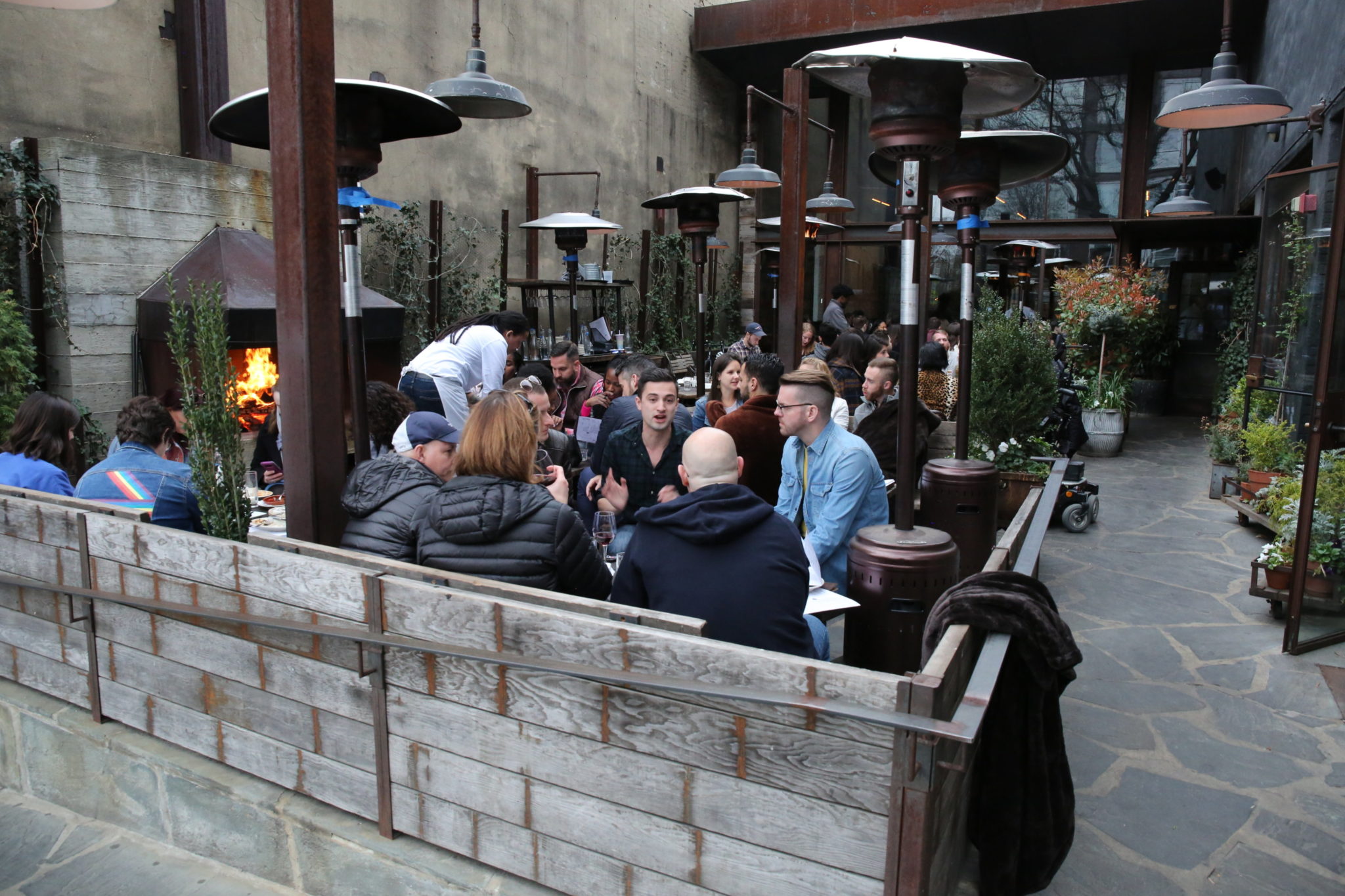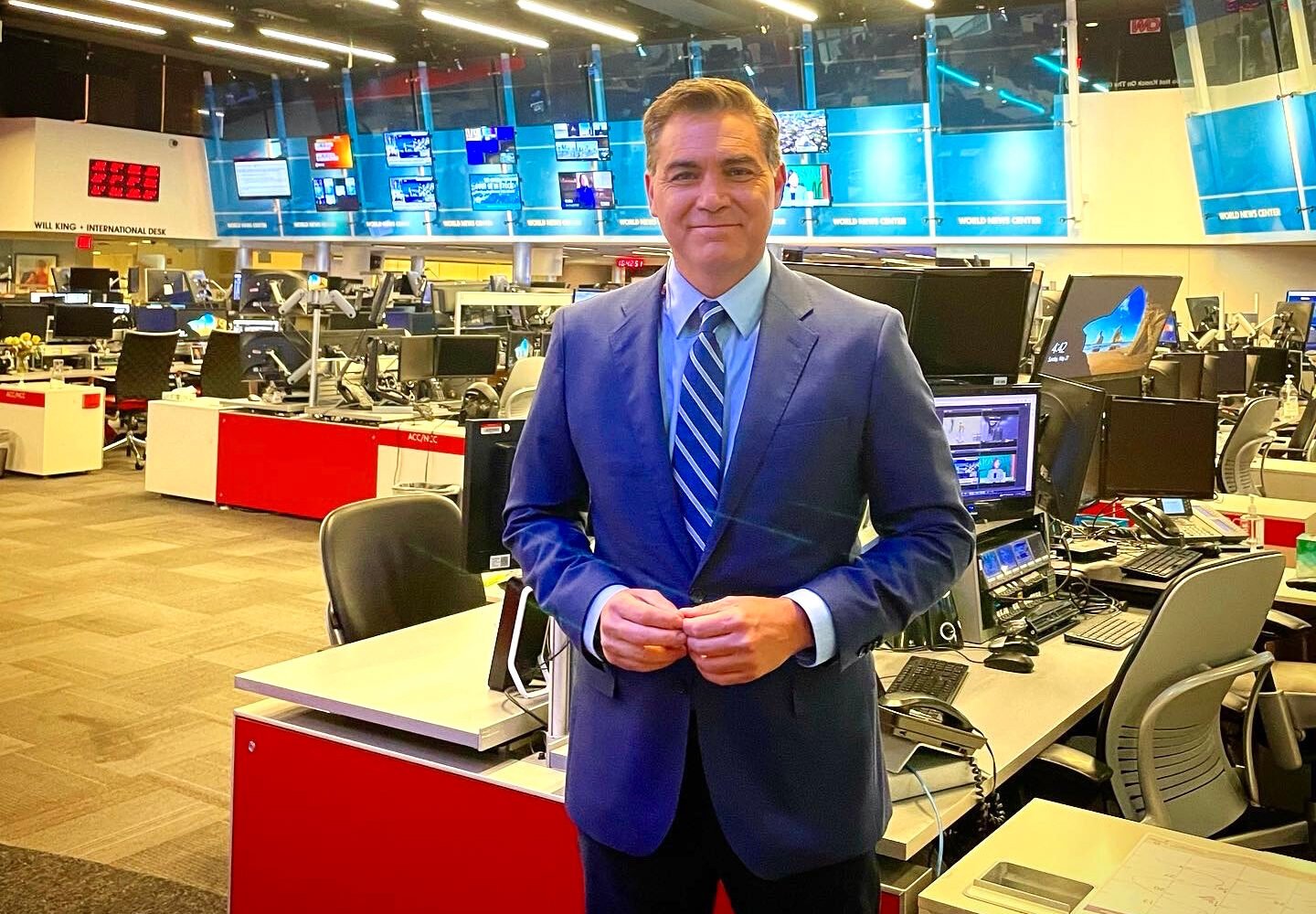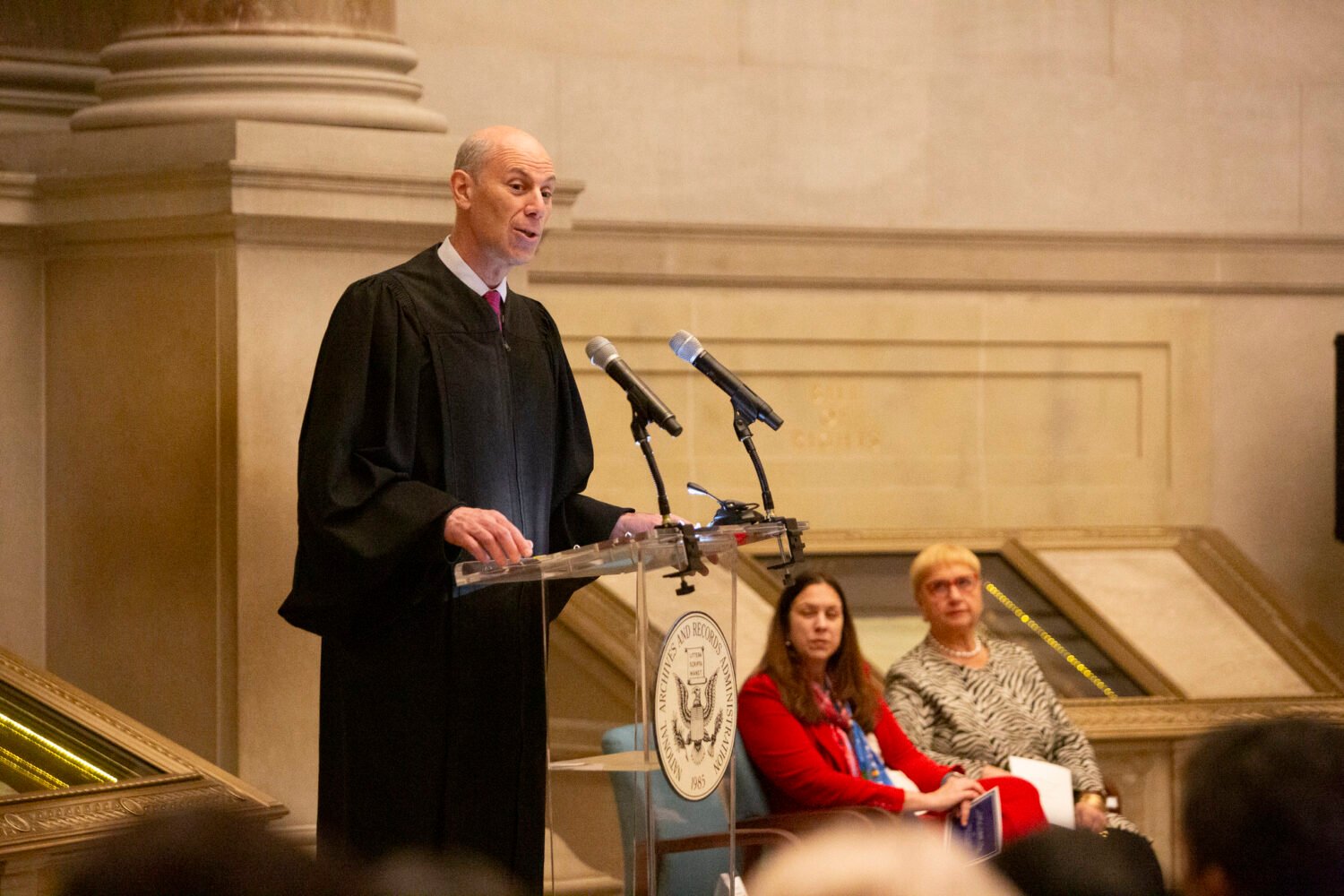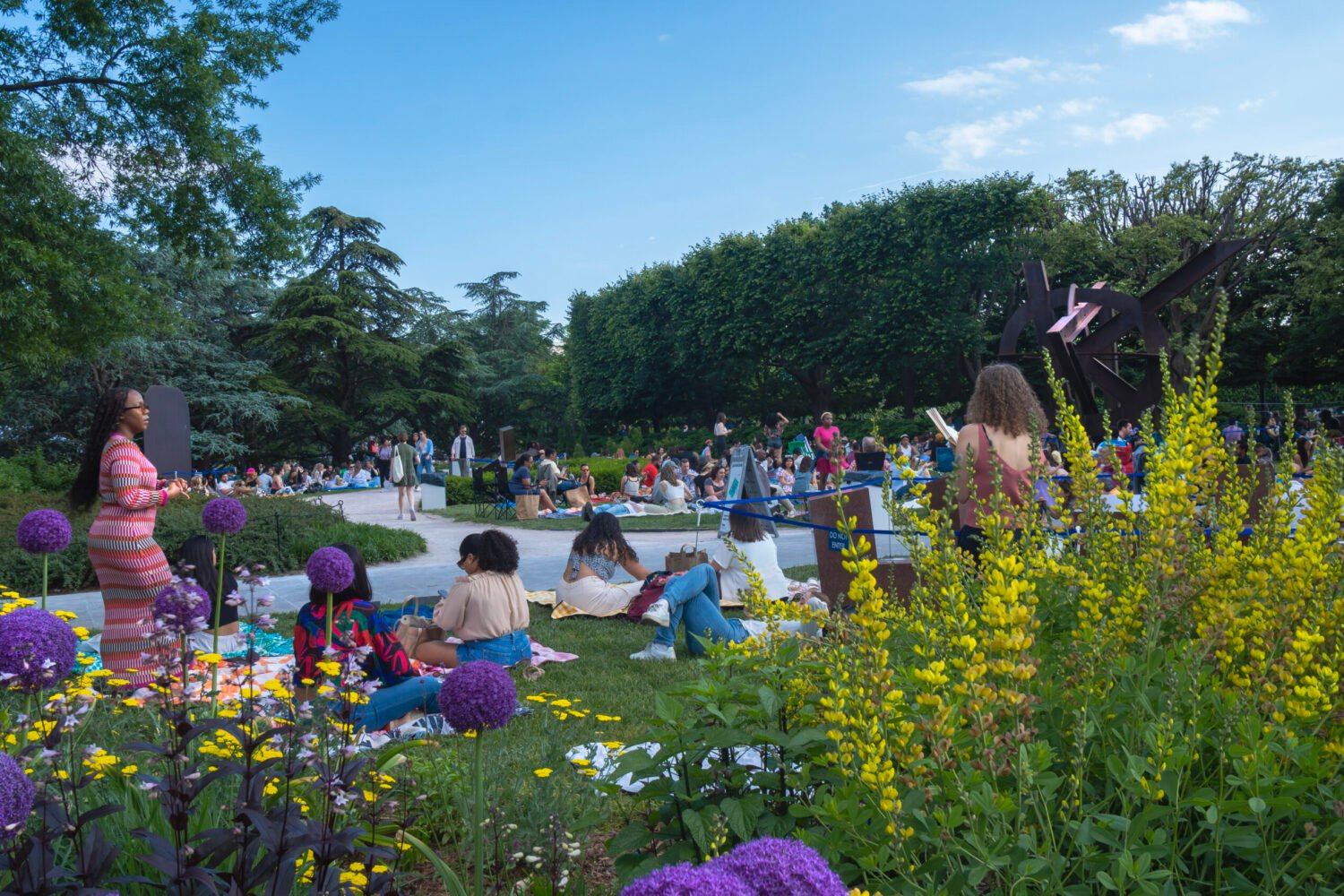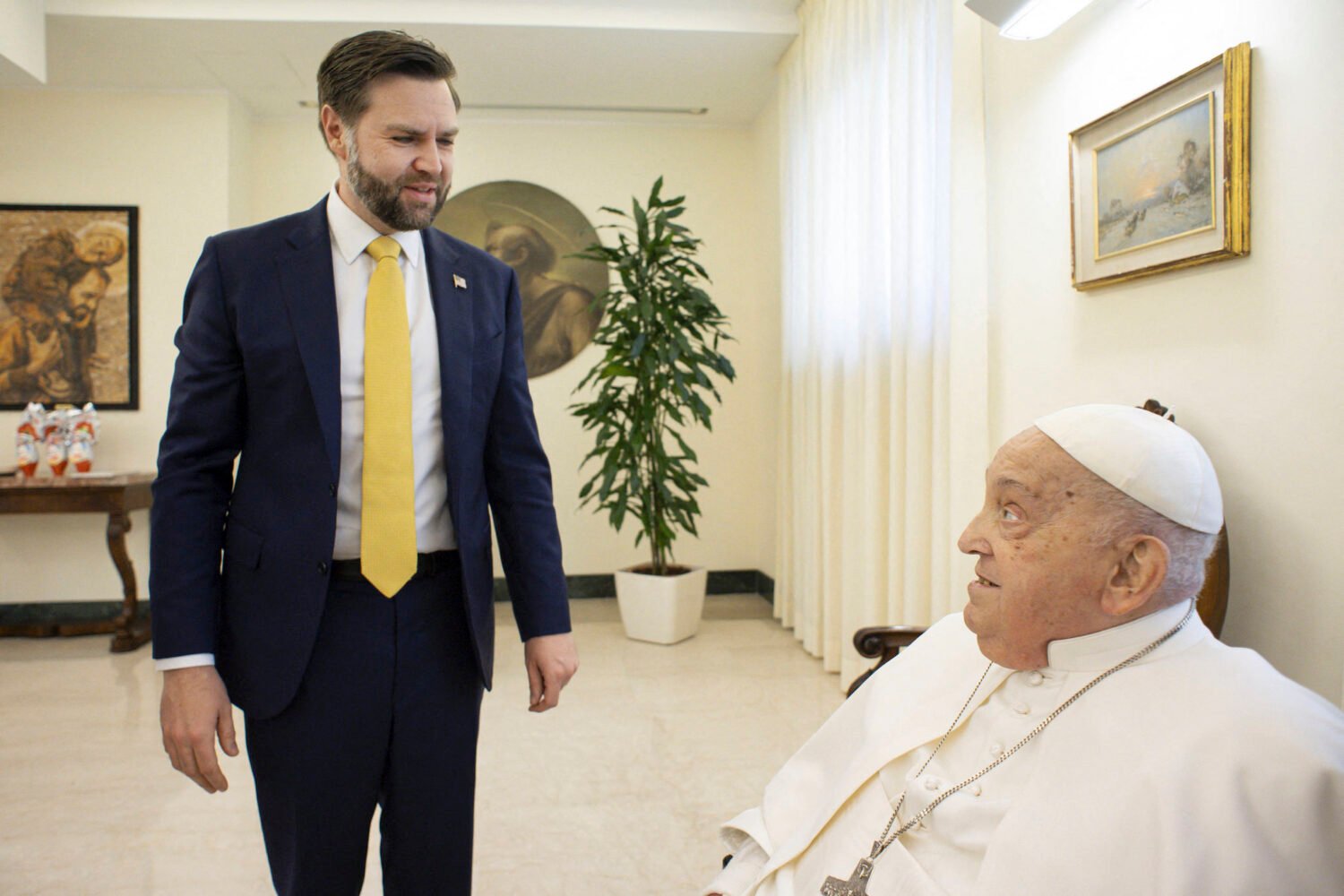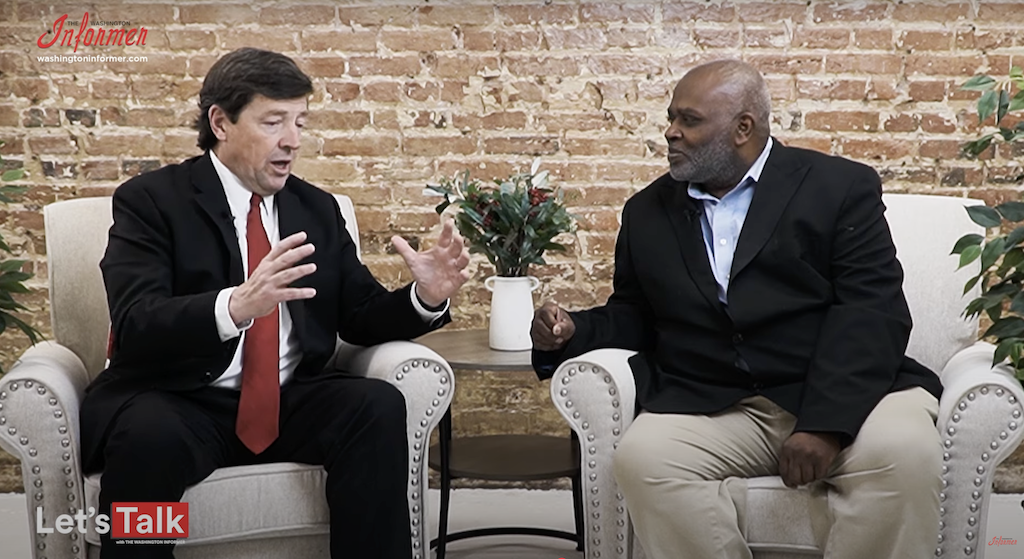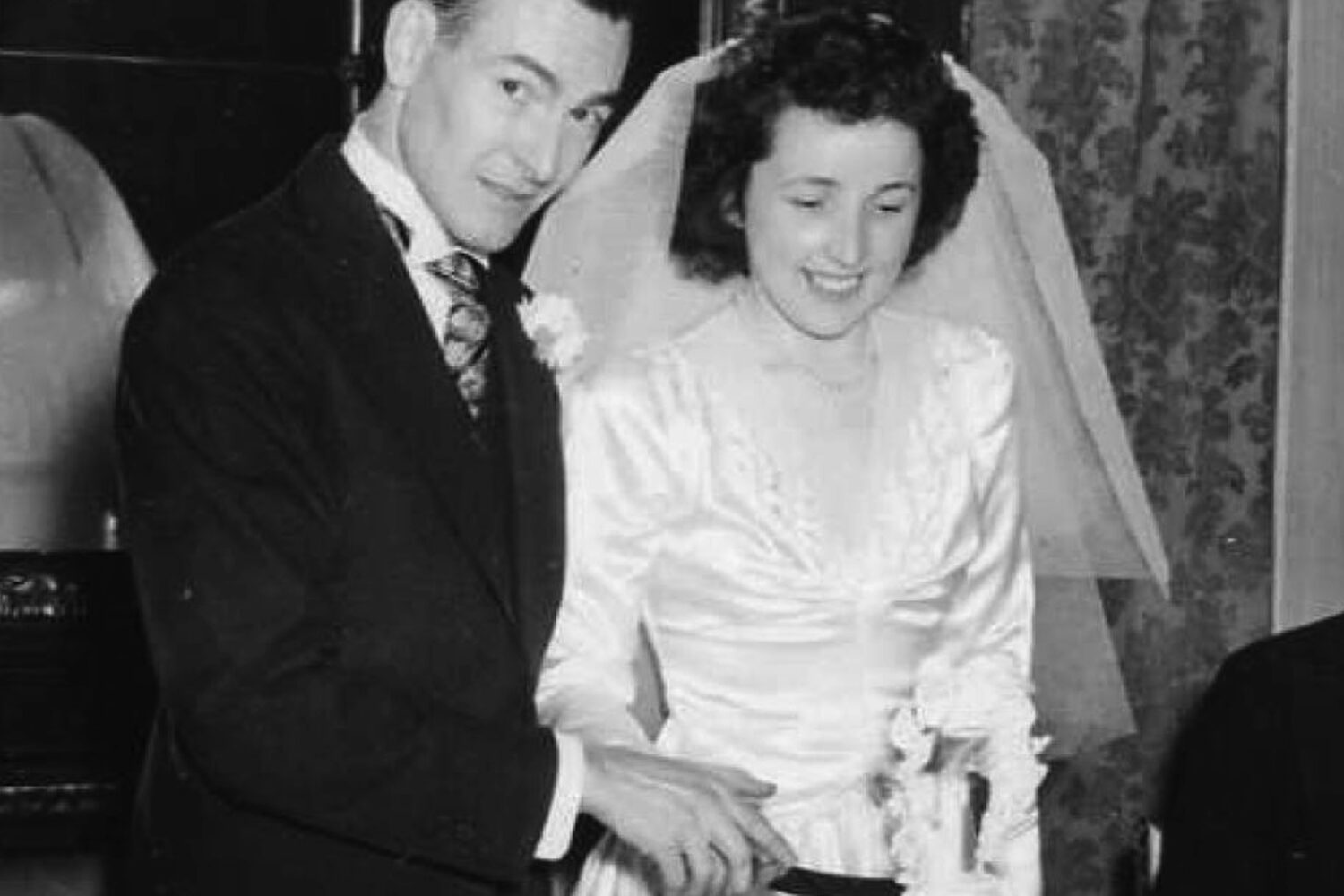About Coronavirus 2020
Washingtonian is keeping you up to date on the coronavirus around DC.
Schools may be closed and offices may be on telework, but social distancing during the coronavirus crisis appears to end at the barroom door.
In nightlife-heavy neighborhoods across Washington, eyewitnesses reported that the usual crowds were little diminished by the unusual circumstances of a national emergency.
It looked like business as usual along restaurant-heavy 14th Street Friday night. And people seemed just as enthusiastic to dine out on Saturday: As of Saturday afternoon, OpenTable showed Le Diplomate, Old Ebbitt Grill, and Kith/Kin booked solid from 5 to 9 p.m.—a normal thing in normal times, and unchanged, apparently, in abnormal times.
The Chinese eatery Queen’s English posted a picture of a busy restaurant on Instagram: “Packed dining room and we’re having a blast. So lucky to have such amazing guests, friends and neighbors in such a short time.”
http://www.instagram.com/p/B9vKFw0hAhD/
Many bars were also open to welcome day drinkers and St. Patrick’s Day partiers. Sauf Haus Bier Hall in Dupont had a line snaking outside the door Saturday afternoon, as did Wet Dog in Shaw.
Though bagel shop Call Your Mother—the Georgia avenue spot that regularly has some of the longest lines in the city—had an eerily slow Saturday morning, Georgetown cupcake joint Baked & Wired had a line out the door by the afternoon
This is the emptiest I’ve ever seen Call Your Mother on a Saturday morning pic.twitter.com/ZqkfRnStxW
— Jessica Sidman (@jsidman) March 14, 2020
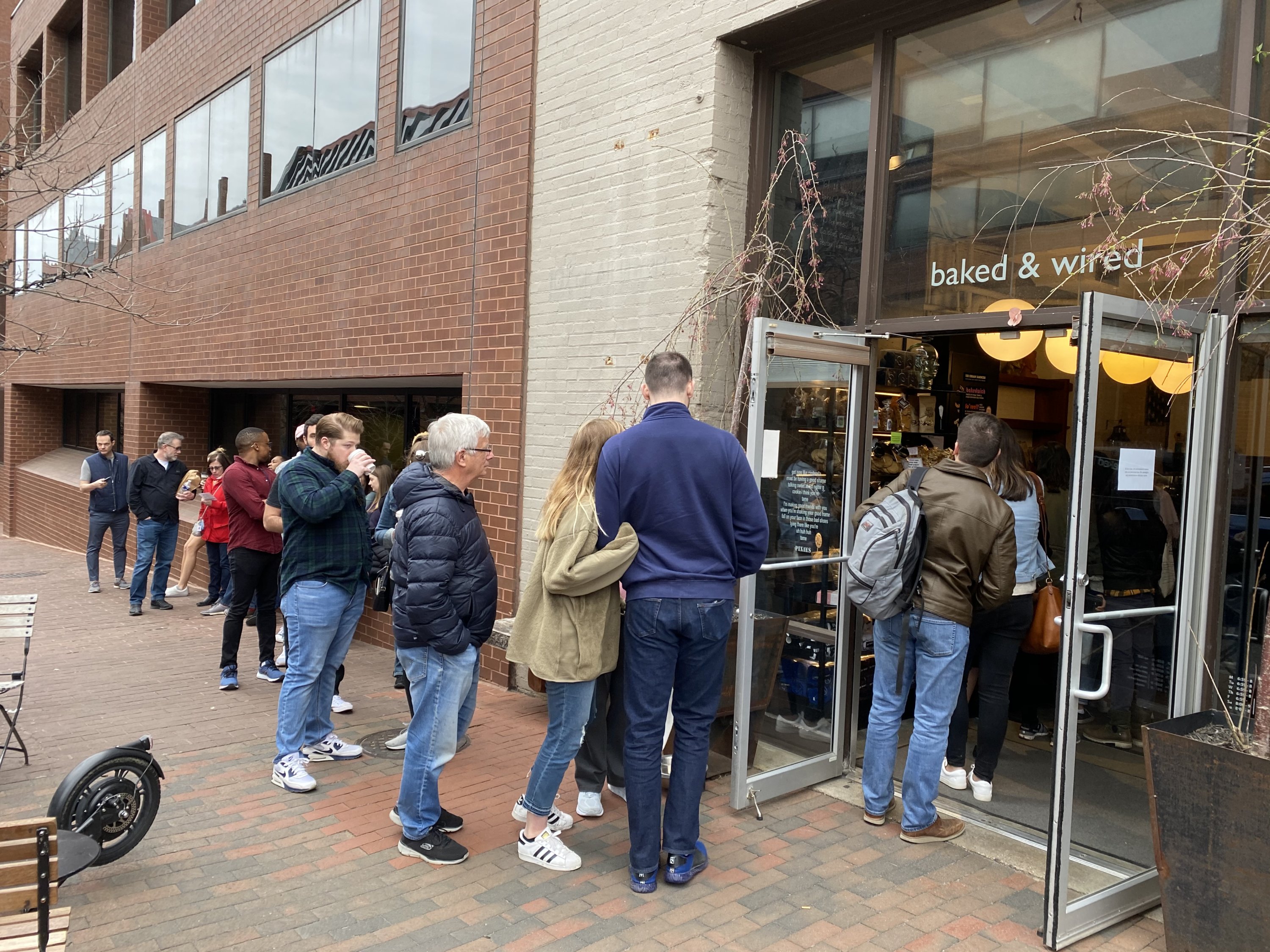
There were at least some differences. Some popular bars, like Brixton, along the U Street corridor , sprayed hand sanitizer on people after the ID check and kept the bar artificially empty to enforce social distancing.
Other DC hot spots have closed in the name of social distancing. Momofuku CCDC, the Washington outpost of David Chang’s Asian-American eatery, has closed until further notice. The All Souls bar in Shaw posted a notice on its door that it is closed until “shit feels a little more normal.”
This was not an easy decision to make but All Souls will be erring on the side of caution and will be closed for the immediate future. We will evaluate this decision next week as the situation evolves. https://t.co/QYbVAoatQ7 pic.twitter.com/HMU1RQZNEm
— All Souls (@allsoulsbar) March 14, 2020
Enforcements on social distancing in the United States are lax compared to many countries in Europe. In Italy and Spain, all businesses except grocery stores and pharmacies have been ordered to close, and people have been singing from balconies to combat the isolation.
People of my hometown #Siena sing a popular song from their houses along an empty street to warm their hearts during the Italian #Covid_19 #lockdown.#coronavirusitalia #COVID19 #coronavirus pic.twitter.com/7EKKMIdXov
— valemercurii (@valemercurii) March 12, 2020
In the US, though, mandates and advice about social distancing have taken place at the local level. In the District, Mayor Muriel Bowser has banned mass gatherings of more than 250 people, and performance spaces have generally followed the lead of larger museums and arenas in closing up shop. But restaurants usually seat fewer than that number.
The call for social distancing puts policymakers (and the private citizens who operate restaurants) in something of a bind, balancing public health against the calamitous business implications of closing up shop. Many restaurants have reported dips of between 25 and 40 percent, according to the Washington Business Journal. But in crowded nightlife districts like DC’s Shaw and Logan Circle, even 75 percent of the usual throng represents a lot of people in tight spaces. And it’s not clear that everyone took the same hit.
And though US jurisdictions have yet to institute draconian, Italian-style edicts, there’s at least some social pressure on citizens to do it themselves.
New York Times health reporter Donald G. McNeil Jr. spoke on the paper’s Daily podcast, begging young people to stay away from the bars to keep the elderly and immunocompromised safe. #Patient31 was trending on Twitter on Sunday morning, referring to a Reuters story that asserted one COVID-19-positive South Korean was responsible for the majority of the country’s cases, after she refused doctors’ pleas to get tested and socially distance.
Currently, the CDC recommends limiting events of more than 250 people, and to maintain a 6-foot distance between yourself and others. And, as always, covering your cough and hand washing is key to limiting the spread of the disease.

